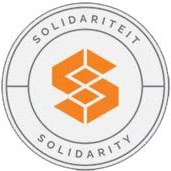BBC challenged to prove BEE report wrong – Solidarity – POLITICS

Movement says report calculates that BEE reduces economic growth in South Africa by 3% annually
Solidarity challenges Black Business Council to prove BEE report wrong
20 June 2025
Researchers from the Solidarity Research Institute (SRI) have issued a simple challenge to the Black Business Council following the latter’s empty criticism of a recently released report on the costs of complying with black economic empowerment (BEE).
The challenge set before them is to disprove this report by the SNI and the Free Market Foundation through evidence or figures of their own, or to otherwise acknowledge the enormous extent of the BEE problem.
While the SRI feels strongly that South Africans everywhere need to hear about the shocking figures and causes revealed in the report, the Black Business Council’s Elias Monage told Business Day that the report’s authors are “talking rubbish” and that the findings are “not backed by evidence”.
According to the SRI, South Africans who believe in a better future cannot tolerate such half-hearted attempts to sweep revelations like these under the rug.
The report calculates that BEE reduces economic growth in South Africa by 3% annually. This compliance has cost the SA economy approximately R5 000 billion since 2007 and led to the loss of roughly 3.8 million jobs.
Since the report’s release, the Black Business Council has been one of the few groups to question these figures, without refuting them with figures of their own.
Theuns du Buisson, economic researcher at SRI and co-author of the report, says criticism of it will be welcomed, but thus far, little more than empty and uninformed insults have been dished out.
“If the Black Business Council wants to dismiss the report as ‘garbage’, it should at least be able to prove the opposite. Yet not a single expert or organisation has provided any evidence that our report or figures are unreliable or inaccurate.”
“We show how BEE is so bad for South Africa that it is sabotaging the future of millions, and it certainly cannot be tolerated any longer. This is no small matter, and that is why we challenge critics like these to come up with their own findings. If they cannot, then they must be prepared to openly acknowledge the extent of the problem,” says Du Buisson.
According to him, the SRI would be surprised to receive substantive criticism from the Black Business Council, even though the group presents itself as one with a drive to empower black people. According to the report, black South Africans in particular also suffer from the consequences of elite enrichment due to BEE.
The SRI and the Free Market Foundation state unequivocally that they have confidence in the methodology used in the months-long study, and that the cost of complying with BEE has placed so much pressure on the economy that it has robbed millions of South Africans from all backgrounds of jobs and a better future.
The economic loss caused by BEE could have long ago provided an answer to South African issues such as inequality, unemployment or poverty, according to the SRI.
Du Buisson also states that the report exposes BEE as a millstone around the neck of the South African economy, and when critics such as the Black Business Council reject it due to ideological or political reasons, they must be addressed.
“We believe that those who defend BEE and are not prepared to acknowledge the crisis are therefore either benefiting from it or are simply uninformed. They are therefore in favour of economic disaster and possibly the highest unemployment rate in the world,” he says.
Solidarity maintains that the only sustainable form of empowerment is economic growth and views any policy such as this that hinders growth as an injustice against South Africa and its citizens.
This report will also be shared with political parties within the government of national unity (GNU), who also have a responsibility to liberate the country from oppressive policies.
Click here for the report on the costs of BEE issued by the SRI on June 12.
Issued by Theuns du Buisson, Economic Researcher: Solidarity Research Institute (SRI), 20 June 2025




